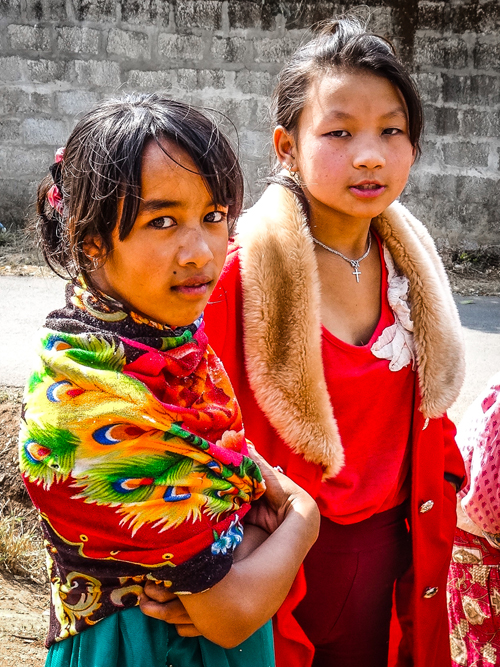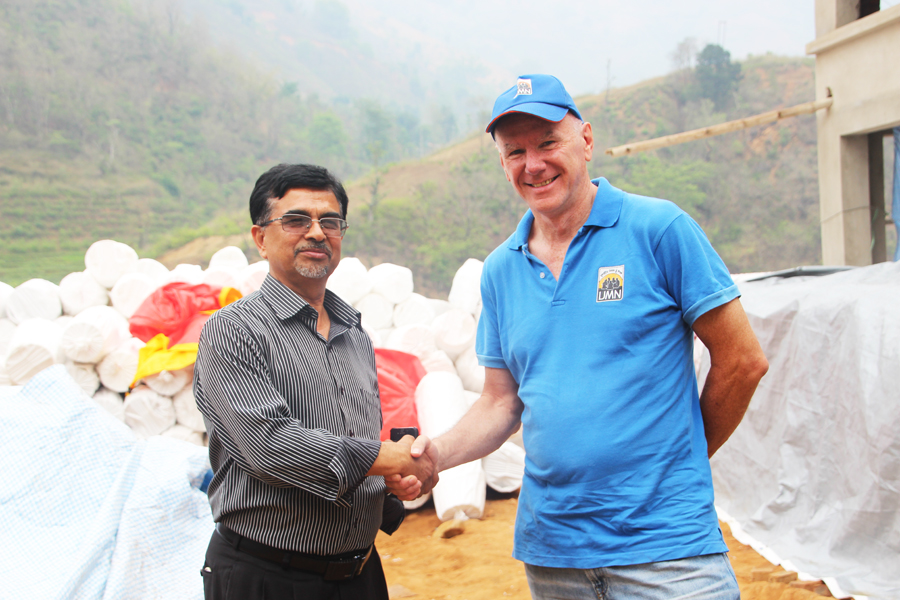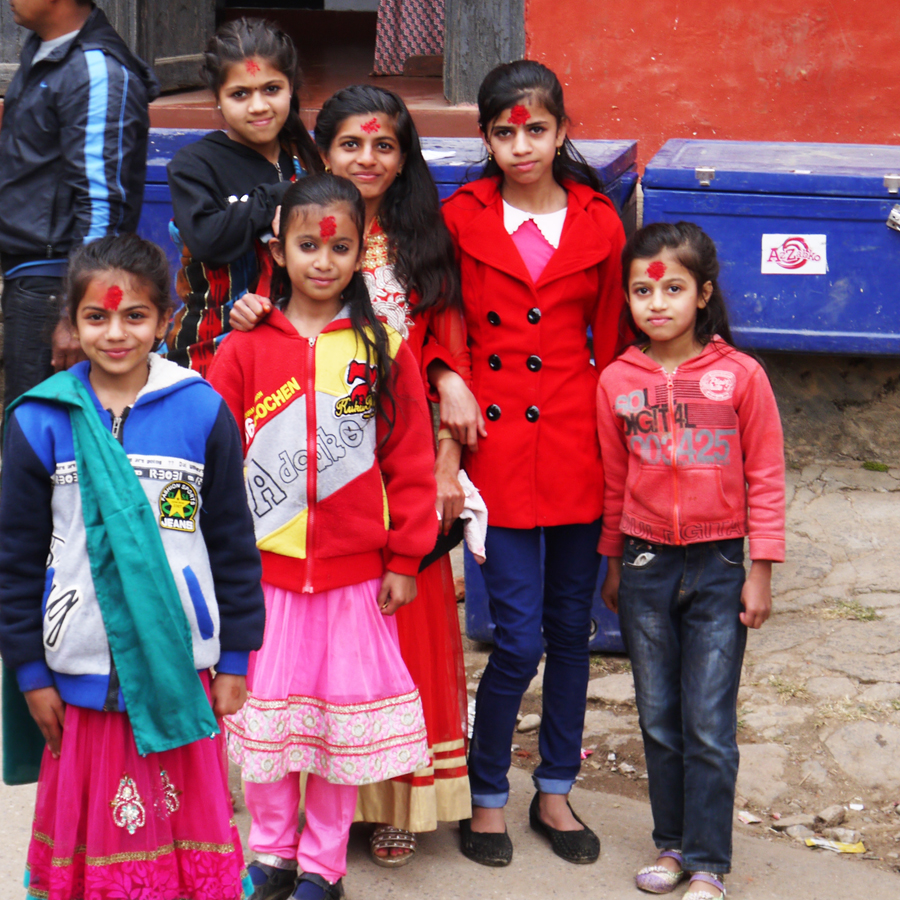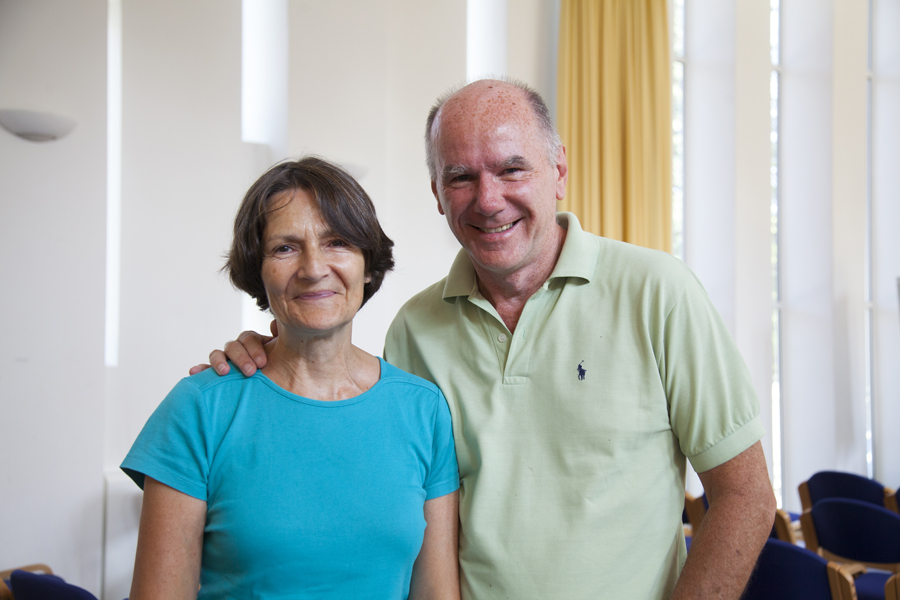Fighting gender discrimination: education for girls in Nepal
When you think of Nepal, you might think of the headlines from last year – the devastating earthquakes and the frustrating fuel crisis. But, there’s another, a hidden issue that you might not know is happening in the country: girls are not being educated. Find out how BMS World Mission has made education possible for 75 Nepali girls, and how we are working to help many more.

Puberty, distance, child marriage and not being a boy – these are just a few of the reasons that girls aren’t going to school in Nepal. So how do you go about changing a deep-rooted cultural issue?
“It’s quite a challenge,” says BMS worker Jerry Clewett. “We’ve had to look at the reasons why girls are not attending school and then try to overcome those barriers.”
Making life better for girls and giving them equal opportunities across Nepal has been part of Jerry’s mission ever since he went out to work in Nepal with BMS 29 years ago. His work as technical director at BMS partner United Mission to Nepal (UMN) has given him a chance to uncover the real reasons that girls aren’t being educated.
Puberty is a problem for girls in Nepal. On top of all of the physical and emotional changes, they often have to quit school. Menstruation is a major factor in this, as many schools don’t have adequate wash rooms. Sanitary pads are also often very expensive – to the point of being unavailable to poorer girls. Many girls will skip school when they have their period, and often they drop out completely.

To help, Jerry and his team have encouraged schools to build better wash facilities, sometimes even providing them with the resources to build them. They have also been developing reusable, washable towels for the girls to use, in the hopes that this will make them less likely to skip school.
The fact that priority is often given to boys in society is another obstacle for girls. If a family struggles financially, they will usually only send their sons to school.
To alleviate this injustice, Jerry and his team set up a scholarship programme for girls. They’ve especially focused on giving scholarships to girls from low caste families, who often face more discrimination.

Distance is another major challenge. Girls who live far from schools, up in the mountains or in rural villages, struggle to access education. If families can afford it, they will send their daughters to local villages where the girls become boarders. Even then, only part of the problem is addressed. Many girls struggle as boarders because often the language their school uses is different to what they speak at home.
BMS partner UMN wanted to do something about this problem, so they built a girls’ hostel in the Mugu district of Nepal. Thanks to the hostel, 75 girls are able to be educated. In addition they also have a hostel mother who is there to support the girls as they learn the local language.
Educating girls in Nepal is an ongoing challenge, but Jerry sees promise. He’s seen attitudes about educating girls slowly begin to change, especially in the bigger cities. And Jerry has met many girls who are already rising to face the challenge.
“With the right kind of support these girls can develop confidence,” says Jerry.

Do you want to support our work to help educate girls in Nepal? You can when you sign up to be a 24:7 Partner today.
Please pray for Jerry and his wife Ruth, as they end their service in Nepal with BMS. Give God thanks for the wonderful work that they have done and pray that God gives them direction in their future back in the UK. Also pray for their daughter Rosie as she adjusts to life in the UK and anticipates going to university this September.
BMS is working to fight gender discrimination in countries around the world. Find out how you and your church can get involved by checking out our Dignity initiative today.
BMS World Mission, 26/07/2016